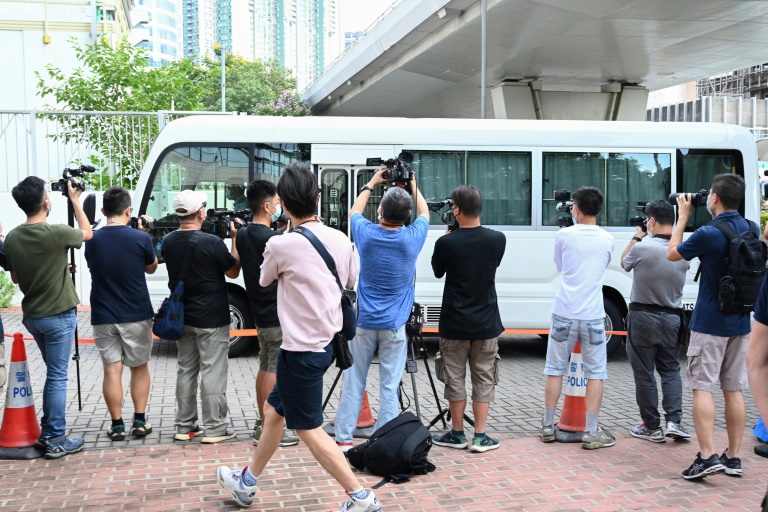
HONG KONG: Two executives from Hong Kong's pro-democracy Apple Daily appeared in court on Saturday charged with collusion after authorities deployed a sweeping security law to target the newspaper, a scathing critic of Beijing.
Chief editor Ryan Law and CEO Cheung Kim-hung are accused of colluding with foreign forces to undermine China's national security over a series of articles that police said called for international sanctions.
It is the first time the political views and opinion published by a Hong Kong media outlet have triggered an investigation under the security law, which was imposed last year by Beijing to stamp out dissent in the financial hub.
Apple Daily and its jailed owner Jimmy Lai have long been thorns in Beijing's side, with unapologetic support for the city's pro-democracy movement and caustic criticism of China's authoritarian leaders.
More than 500 police officers raided the paper's newsroom on Thursday, carting away computers, hard drives and reporters' notepads.
Five executives were also arrested. Law and Cheung were charged on Friday while the three others were released on bail pending further investigations.
Dozens of supporters were queuing to get seats in court on Saturday morning, including many former and current employees of Apple Daily.
A staff member, who gave her surname as Chang, said she and many other Apple Daily employees treat "every day like it is our last" working for the paper.
"At first, authorities said the national security law would only target a tiny number of people," she told AFP.
"But what has happened showed us that is nonsense," she added.
Another staff reporter, who gave her first name as Theresa, said she felt Apple Daily's legal troubles were a warning shot.
"I think what has happened to Apple Daily today can eventually happen to every other news outlet in the city," she said.
Multiple international media companies have regional headquarters in Hong Kong, attracted to the business-friendly regulations and free speech provisions written into the city's mini-constitution.
But many are now questioning whether they have a future there and are drawing up contingency plans as Beijing presses on with a broad crackdown on dissent in the city.
Local media have an even tougher time, with journalist associations saying reporters are increasingly having to self-censor.
Hong Kong has steadily plunged down an annual press freedom ranking by Reporters Without Borders, from 18th place in 2002 to 80th this year.
Mainland China languishes 177th out of 180, above only Turkmenistan, North Korea and Eritrea.